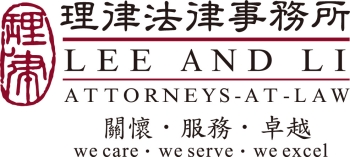According to Article 30(7)(1) of the Trademark Act, any trademark which is contrary to public policy or accepted principles of morality will not be granted registration. In order to clarify the definition and scope of the terms 'contrary to public policy' and 'accepted principles of morality', the Taiwan Intellectual Property Office stipulated that the Examination Guidelines on Trademarks Contrary to Public Order or Good Morals should be used as the reference for reviewing relevant issues. The guidelines entered into effect on May 11 2015.
The guidelines specifically stipulate 10 types of trademark that are deemed contrary to public order or good morals:
- trademarks that are likely to spread offence, violence, terrorism or rebellion or to disturb social order;
- trademarks that offend national dignity;
- trademarks that offend religious dignity;
- trademarks that offend specific social ethnic groups or group dignity;
- trademarks that offend the dignity of specific people;
- trademarks that advocate superstition, thus threatening physical and mental wellness;
- trademarks that contain language or devices involving sex offences, obscenities or indecency;
- trademarks that contain the portraits or names of deceased famous or historical people;
- trademarks that contain the name of a fictional character from a famous historical novel; and
- trademarks that violate social and public interest in society or destroy ethics and morality.
For further information on this topic please contact Ruey-Sen Tsai at Lee and Li Attorneys at Law by telephone (+886 2 715 3300) or email ([email protected]). The Lee and Li website can be accessed at www.leeandli.com.



